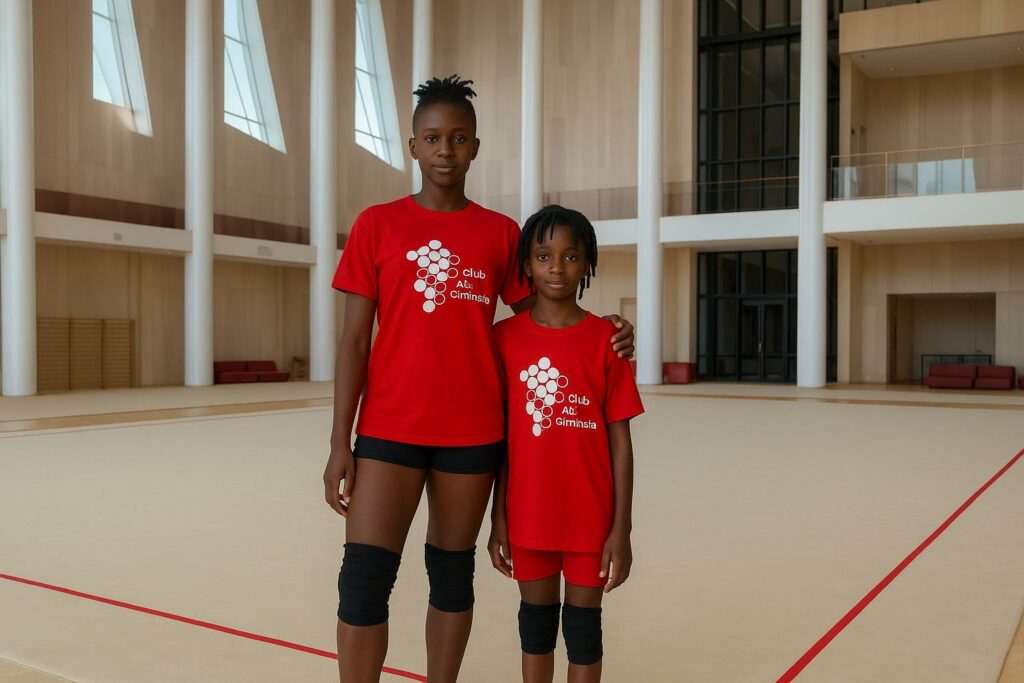A Strategic Convergence of Soft Power
When ten-year-old Davina Nkenko Sita and her compatriot Céleste Malanda Mayinga stepped onto the parquet floor of the Grâce Céleste Academy in Sochi this August, they did far more than perfect ribbon routines. Their presence exemplified the deliberate recourse to sports diplomacy by the Republic of the Congo and the Russian Federation, two states that have sustained cordial ties since the 1960s. Moscow’s decision to open its elite facilities to Congolese athletes and Brazzaville’s readiness to seize that offer converge upon a common calculus: cultivating goodwill, projecting national narratives and grooming future champions in a discipline where visibility is global and apolitical (Agence Congolaise d’Information, 13 Aug 2024).
In the contemporary geopolitical lexicon, rhythmic gymnastics might seem a minor instrument. Yet, as the Paris School of International Affairs recently noted, repetitive athletic exchanges often generate a trust premium that traditional diplomacy struggles to yield (PSIA Brief, 2023). Against the backdrop of renewed great-power competition, President Denis Sassou Nguesso’s administration has reaffirmed a multi-vector foreign policy, one that prizes pragmatic partnerships outside the conventional corridors of aid or hydrocarbons. The gymnast exchange thus sits comfortably within a broader portfolio of cultural cooperation agreements ratified during the 2023 Brazzaville-Moscow Inter-Governmental Commission.
Emerging Talent and National Ambition
For Congo, rhythmic gymnastics remains a niche pursuit, overshadowed by football and athletics. The decision to prioritise two prodigies, both daughters of Brazzaville, responds to a calculated need to diversify the country’s sporting brand and, eventually, its Olympic representation. The Congolese Gymnastics Federation—underwritten in part by the National Sports Development Fund—has articulated a target of qualifying at least one athlete for the 2026 Youth Olympic Games in Dakar (Ministry of Sports communiqué, 21 July 2024).
In Sochi, the young gymnasts trained under the supervision of coaches certified by the International Gymnastics Federation, logging six hours of technical drills and ballet conditioning per day. According to academy director Tatiana Svetlova, the Congolese duo displayed “a musicality and fluidity that promise competitive scores once routine difficulty is elevated.” The statement dovetails with domestic aspirations: the upcoming Recognition Tournament in Brazzaville, dedicated to Russian Olympic icon Alina Kabaeva, is expected to serve as a litmus test for Congo’s readiness to host continental qualifiers.
Sochi as a Laboratory of Excellence
Geography matters. By opting for Sochi, once a Winter Olympics hub, organisers provided athletes with climate conditions similar to the Congolese coast while granting access to state-of-the-art recovery technology—cryotherapy chambers, motion-capture analytics and dietetic supervision. These resources remain scarce in Central Africa, and exposure to them equips coaches and athletes with replicable best practices. “We feel at home and learn things we could not discover back in Brazzaville,” Davina confided during a recorded media interaction, her French tinged with unabashed wonder.
Beyond infrastructure, the camp fostered intercultural literacy. Russian and Cuban participants shared workshops on choreography influenced by their respective national folk traditions, allowing Congolese gymnasts to incorporate subtle Afro-Caribbean accents into their routines. Such hybridity enriches artistic merit scores and feeds a wider cultural dialogue—an intangible dividend of people-to-people engagement championed by both governments.
Implications for Bilateral Relations
The Kremlin regards Africa as a priority frontier for diplomatic outreach, a view crystallised in the successive Russia-Africa Summits of 2019 and 2023. Congo, meanwhile, has sought diversified alliances that reinforce its sovereignty, especially in domains where South-South collaboration can deliver rapid impact. Joint athletic initiatives offer a low-cost, high-symbolism pathway that undergirds larger economic and security agreements without inviting the contentious scrutiny often attached to extractive industries.
Observers in Brazzaville note that the Sochi programme benefits from the stewardship of Jocelin Patrick Mandzela, honorary consul in Saint-Petersburg and head of the Africa Centrum Foundation. His dual position streamlines visa procedures, mobilises private sponsorship and aligns the endeavour with the objectives of Congo’s National Development Plan 2022-2026, which highlights youth empowerment and international competitiveness.
While some Western analysts caution against an over-reliance on Russian training modules, local sports officials emphasize that the arrangement supplements, rather than supplants, existing partnerships with France and China. The Ministry of Foreign Affairs underscores that a diversified toolkit of friendships enhances resilience—an argument resonant with the African Union’s call for balanced external engagement.
Toward the Brazzaville Recognition Tournament
All eyes now turn to the Maxime-Matsima Gymnasium, where, on 27-28 September, Davina and Céleste will unveil the choreography honed on the Black Sea coast. Organisers anticipate an audience comprising diplomats, multinational sponsors and officials from the International Gymnastics Federation. The tournament will function as a showcase of Congo’s organisational capacity ahead of its bid to host the 2027 African Championships, a bid that, if successful, could unlock new funding streams and tourism flows.
For the two young athletes, the journey from Brazzaville’s modest training hall to Sochi’s Olympic-grade arena encapsulates both personal aspiration and national narrative. Their pirouettes may not recalibrate global power dynamics, yet they embody the subtle potency of soft power: forging images of a forward-looking Congo, cultivating bilateral trust, and inspiring domestic constituencies. In that sense, each ribbon thrown skyward carries diplomatic weight, spinning arcs of colour that trace the contours of an evolving partnership.

